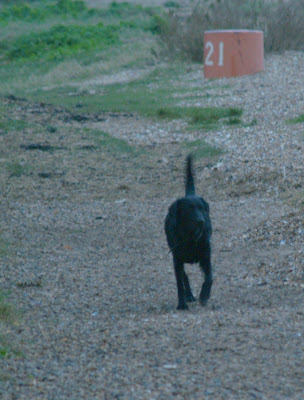I’ve used LULU to produce an 18 month calendar, valid from July 2007, cost £10. I have no idea if anyone wants to buy one, but if you do, click here.
Monthly Archives: March 2007
TBTM20070326
TBTM20070325
What I believe
Several disparate things have prompted this post, but the trigger was reading these two posts over at ‘the parish’ – which, if you don’t already read it, you should. One of the most real blogs out there.
1. I believe that God is love.
Without exception, without reservation. God is light and in him is no darkness at all. The simplicity of God’s nature is the simplicity of love; all else follows from that. And, for the avoidance of the inevitable romanticising about ‘love’, I should add that love is what Jesus displays, in all his angry blood and gore.
2. I believe that Jesus is the incarnate Word of God.
Jesus shows us who God is. God is Christ-like and in Him is no un-Christ-likeness at all. God speaks, and the world exists; that which God speaks is Jesus; the world is created through him and for him, in him all things hold together. We can only be ourselves when Christ is allowed to be within us.
3. I believe that Jesus rose from the dead.
Resurrection is the revelation of God’s nature; without it there is no Christianity – it is the horizon of Christian belief and practice. Resurrection is the experience of forgiveness in the first disciples; it is God taking the hit on our behalf, and transforming it into grace; it is the activity and presence of the Spirit redeeming our perpetual mistakes. We are an Easter people and Alleluia is our song.
4. I believe that friendship is the fundamental Christian category.
‘I have called you friends’: not believers, not members. We are called out from our families into a new way of relating with one another. Friends do not judge or condemn; they break bread together. More fundamentally, friendship is formed – can only be formed – when there is a common commitment to that which is greater than the friendship itself; that is what preserves the reality. We are not slaves or servants – there is no hierarchy in the church – that is why judgement and condemnation are anathema, despite what St Paul says.
5. I believe in the church.
The church is the community of friends who share forgiveness; who live out that life, binding up each other’s wounds, keeping each other moving on the way. It is Sam and Frodo sharing the Lammas bread on the way to Mordor. It is not identical with any human institution, but nor is it separable from such institutions (that would be docetism and individualism – the heresies rampant in Modern American Protestantism).
6. I believe that Christian faith is a form of life.
What we do expresses what we believe, what we say does not; or, put differently, we do things with words, and what Jesus is concerned with is what we do, not what we believe. I think this is emphasised beyond doubt by Scripture, both Old and New: not everyone who calls Him Lord enters the Kingdom, but only those who do the will of the Father. The grammar of our faith is necessary because of the way it shapes our lives; doctrine, and the soundness of doctrine, is fundamentally pastoral in character. We are indeed saved by right belief, but not in the sense of being able to say ‘Abracadabra’ to open the pearly gates. We are set free from self-hatred and distortion through discerning the truth about Christ. This is, of course, why Christianity is necessarily sacramental, and why the denial of sacramentality is a denial of the Incarnation.
7. I believe that the world has been saved.
That is, it already has been saved. We do not need to save the world. God is accomplishing His purposes and His Word will not return to Him fruitless. The gates of hell will not prevail against the church. And Jesus is with us until he comes – the importance of that statement being it’s open-endedness. Nobody knows the hour. Our task is not achievement, but obedience. For he has shown you, O man, what is good…
I may add to or amend this over time.
TBTM20070324
Why I am a Conservative (link)
When I was a civil servant, I devised my ‘rule of three’.
A third of civil servants do useful work (and they are extremely good at what they do).
A third of civil servants do useless work (work which does not need to be done).
A third of civil servants do not work.
GOP20070323
TBTM20070323
TBTM20070322
Revealed
Another bit of silliness (courtesy of Costly Grace) about what sort of a book reader I am. Answer below the fold.
| What Kind of Reader Are You?
Your Result: Dedicated Reader
You are always trying to find the time to get back to your book. You are convinced that the world would be a much better place if only everyone read more. |
|
| Obsessive-Compulsive Bookworm |
|
| Literate Good Citizen |
|
| Book Snob |
|
| Non-Reader |
|
| Fad Reader |
|
| What Kind of Reader Are You? Create Your Own Quiz |
|








